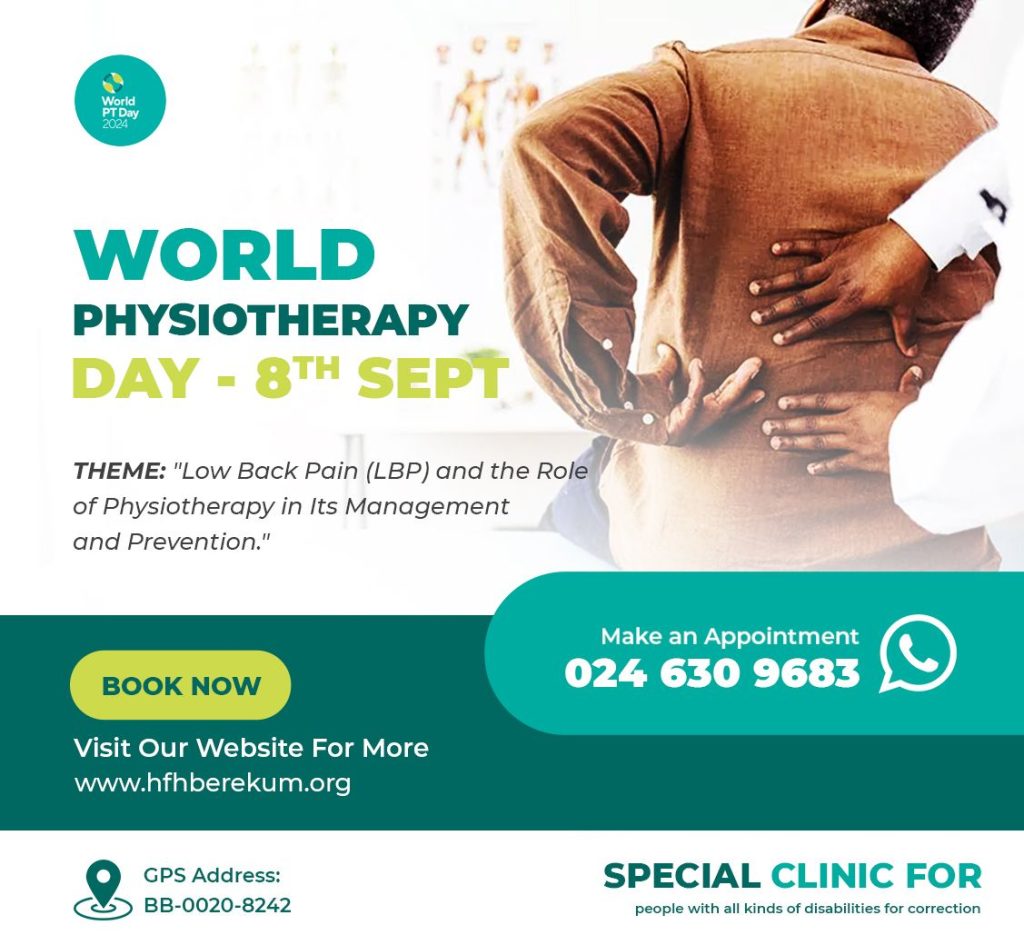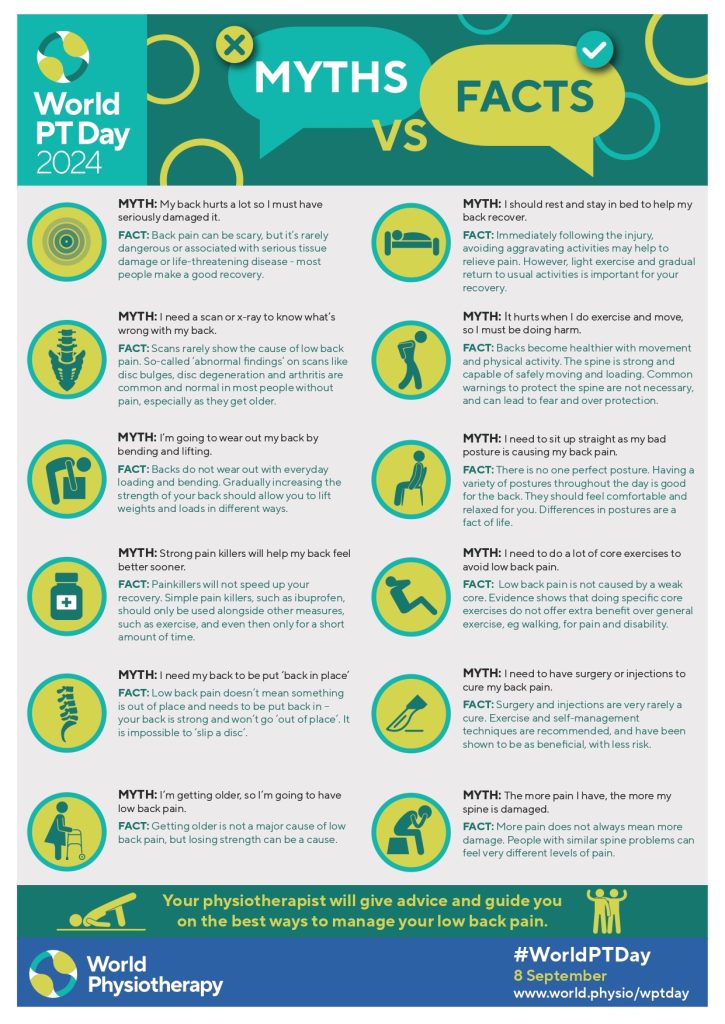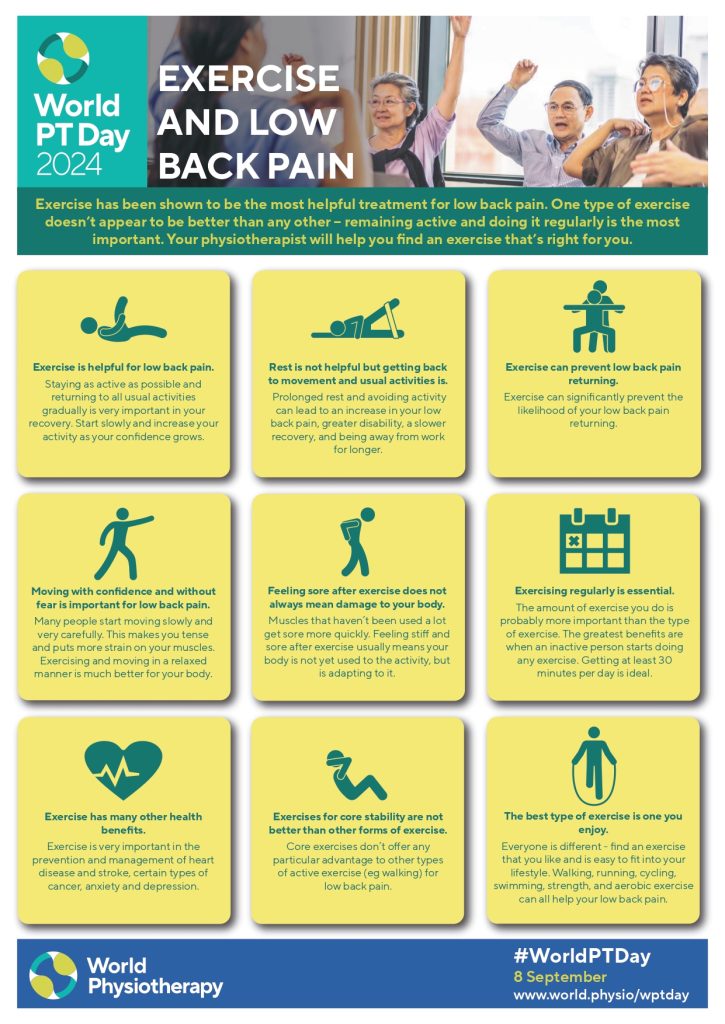
Every year on September 8th, World Physiotherapy Day is celebrated globally to recognise the invaluable contributions of physiotherapists in improving health, enhancing mobility, and promoting well-being.
For 2024, the theme is Lower Back Pain (LBP). This year’s focus shines a spotlight on one of the most common yet debilitating conditions affecting millions of people worldwide. It’s a day to not only celebrate the physiotherapy profession but also to raise awareness about the critical role physiotherapists play in managing and preventing lower back pain.

The campaign is focused around the following key messages:
- LBP is the leading cause of disability globally. 619 million people experienced LBP in 2020, that’s 1 in 13 people.
- LBP can be experienced at any age, and almost everyone will experience it at some time in their lives. However, it only becomes chronic (lasting more than 3 months) for a minority.
- 90% of LBP is non-specific, this means there is no one specific structure (eg, joint, muscle, ligament, disc) that can be found to cause it, and it is not due to a serious or specific underlying disease.
- Among health conditions that may benefit from rehabilitation, LBP is the condition that the greatest number of people could benefit from.

- Physiotherapists provide expert advice, guidance and treatment for LBP. They will help to improve your overall health and wellbeing, while reducing your chances of future episodes.
- In all types and at all stages of LBP, rehabilitation is essential to reassure people and help you make sense of your pain, help support recovery, return to activities you enjoy and maintain independence in daily living.
- Non-surgical interventions are recommended to help people experiencing LBP. Physiotherapists are specialists in the care of LBP, and can offer tailored treatment, including:
- education programs that support knowledge and self-care strategies
- physiotherapist-supervised exercise programs
- physiotherapy interventions such as manual therapy
- Exercise has been shown to be the most helpful treatment for LBP. One type of exercise doesn’t appear to be better than any other – remaining active and doing it regularly is the most important. Your physiotherapist will help you find an exercise that’s right for you.
Credit: sunderlandims / world.physio/wptday
